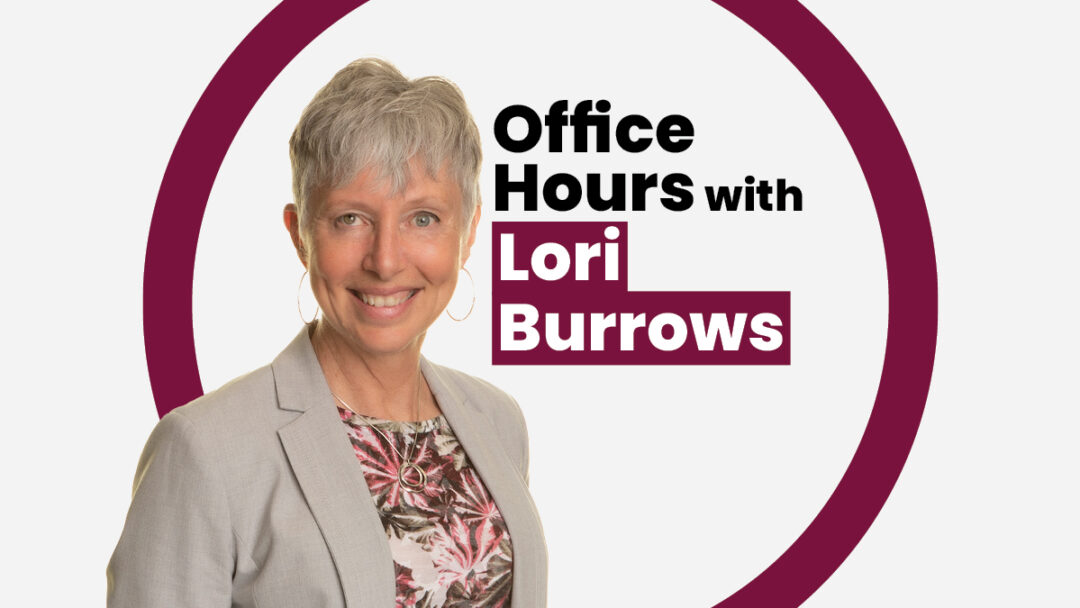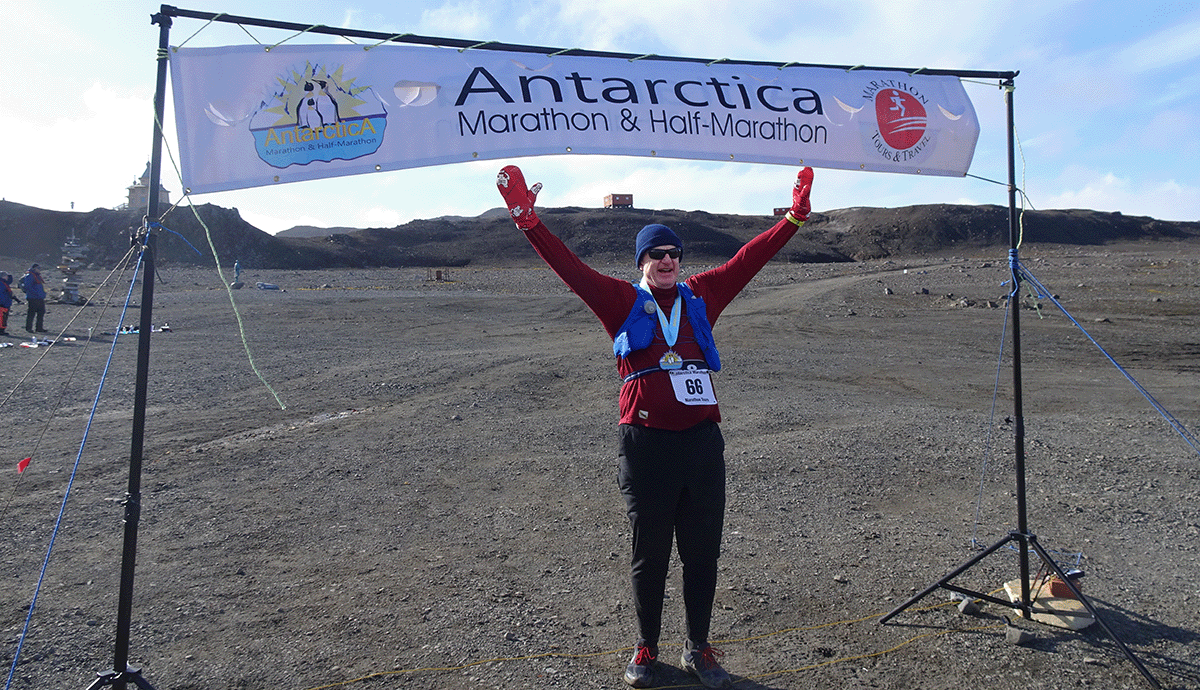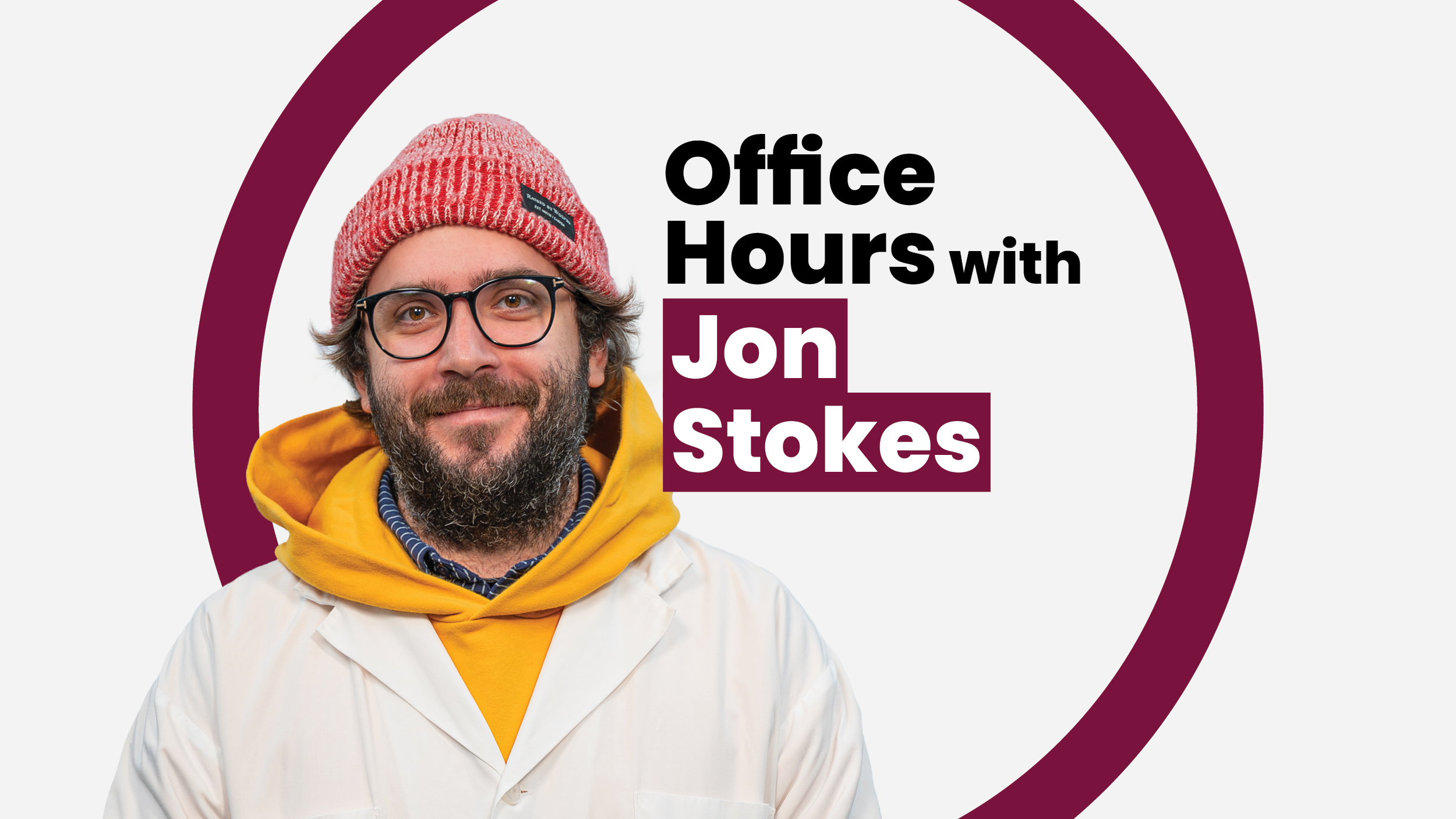Office Hours with Lori Burrows

Lori Burrows has spent her career studying bacteria that pose great risk to people when they’re at their most vulnerable — a reality she has firsthand experience with.
Burrows, a professor with McMaster University’s Department of Biochemistry and Biomedical Sciences, is a microbiologist. She has devoted much of her work towards studying an opportunistic bacterial pathogen known as Pseudomonas.
“This pathogen can cause infection in immunocompromised people but isn’t really that dangerous to individuals who are healthy,” Burrows says. “When it does cause infections, though, it’s very dangerous because it is resistant to a lot of the commonly used antibiotics.”
She first took interest in Pseudomonas when she was a postdoctoral fellow working with patients who have cystic fibrosis – a genetic disease that primarily affects the lungs and digestive system. Cystic fibrosis patients can contract lung infections when they’re young and have reoccurring infections through their life.
“There is really no good to way to treat these patients other than with conventional antibiotics and because these infections are never completely resolved, people with CF are repeatedly exposed to antibiotics and never actually clear the infection,” she says.
In 1999 she founded her lab with the goal of studying this difficult pathogen. Since then, Burrows has expanded her work to include biofilm research. Biofilms are made up of a collection of microorganisms, including bacteria, that attach to surfaces like medical equipment.
“Biofilms in general are very hard to get rid of. Imagine if they start growing on things like catheters or contact lenses. They are hard to treat because they’re big gloopy colonies of bacteria,” she says.
A troubling diagnosis
In 2018, Burrows was diagnosed with melanoma. Two months later, breast cancer.
“I had the deluxe cancer package of chemo, surgery and radiation,” Burrows says. “I had treatment for both of those things, and they decided the breast cancer was more serious than the melanoma.”
The diagnosis was surprising, but Burrows maintained a positive attitude knowing she would get through it.
Burrows started chemotherapy with a drug called doxorubicin – an antibiotic she has personal experience with inside her own lab.
“It’s so toxic. They must infuse it by hand because if they just stick it in an IV and walk away and it manages to escape from your vein, it could cause a huge reaction,” Burrows says.
Her cancer battle put her in a unique position. She had spent her career studying bacteria that takes advantage of people with a weakened immune system, and now found herself vulnerable.
“Infectious diseases don’t care. If you’re immunocompromised, then you’re just another host. It made me more empathetic towards people who struggle with poor health and people who are immunocompromised,” she says.
With her positive attitude in tow, Burrows successfully completed her treatments and now lives cancer-free.
Looking to the future
Burrows’ research through the years on intractable bacteria and antibiotic resistance has led her to a new interest: phage therapy.
A phage is a type of virus that infect and replicating within bacteria, ultimately killing them. Because of this, researchers have been working to create phage therapies as an alternative to antibiotics.
“It’s been really fascinating because normally when we try to figure out how something works, we’re very deliberate. But Mother Nature is a lot more subtle than that. If you just throw the phage at the bacteria and then wait to see what happens, you get all kinds of exotic and weird and wonderful things happening.”
Burrows also sees a future where artificial intelligence plays a larger role in the creation of treatments, and she believes her work can help provide the fundamental information needed to make this happen.
“In order to train an AI, you need some of this basic data to say, if my phage has this kind of tail and my bacteria has this kind of surface, that’s a match.”
By feeding the AI the essential information she is helping to gather, a properly trained AI could be used to find a phage that could combat a specific bacterium.
“I think our contribution would be feeding an AI this carefully curated set of data, so it can learn how to do this.”
But no matter where her journey goes next, Burrows says the great work she has been a part of through her career has been thanks to the help of many incredible people.
“Principal investigators are dependent on our trainees and their ideas,” she says. “We’re just the conductors of the orchestra but we don’t really make the music. They make the music.”
Faculty & Staff, Office HoursRelated News
News Listing

21 hours ago

December 23, 2024

